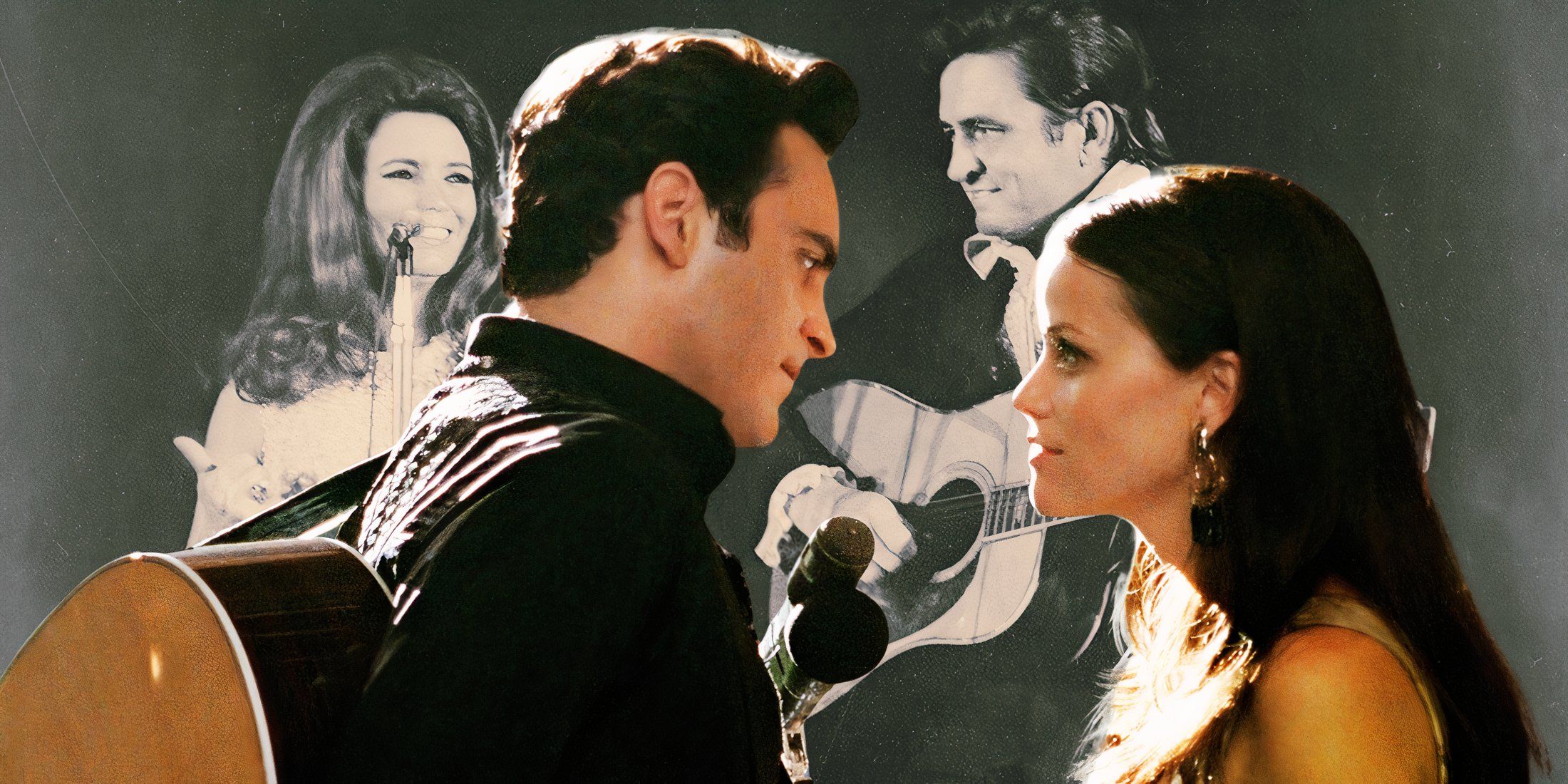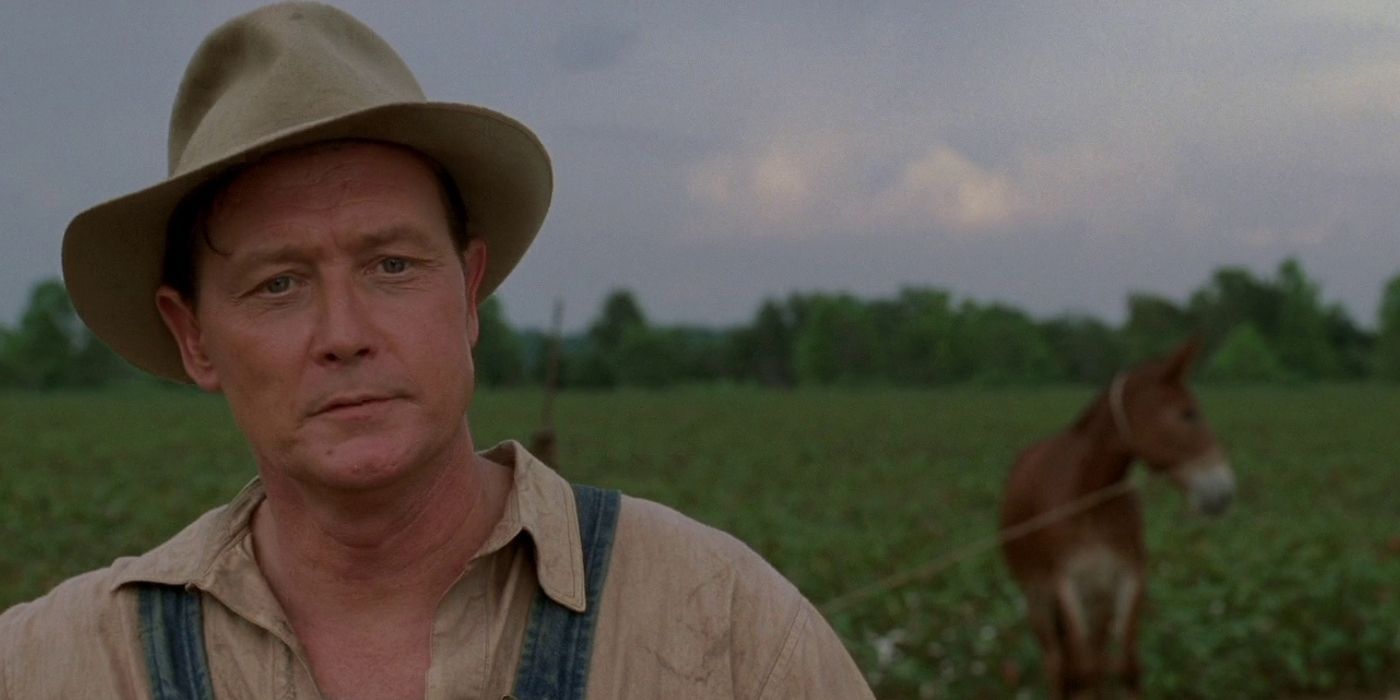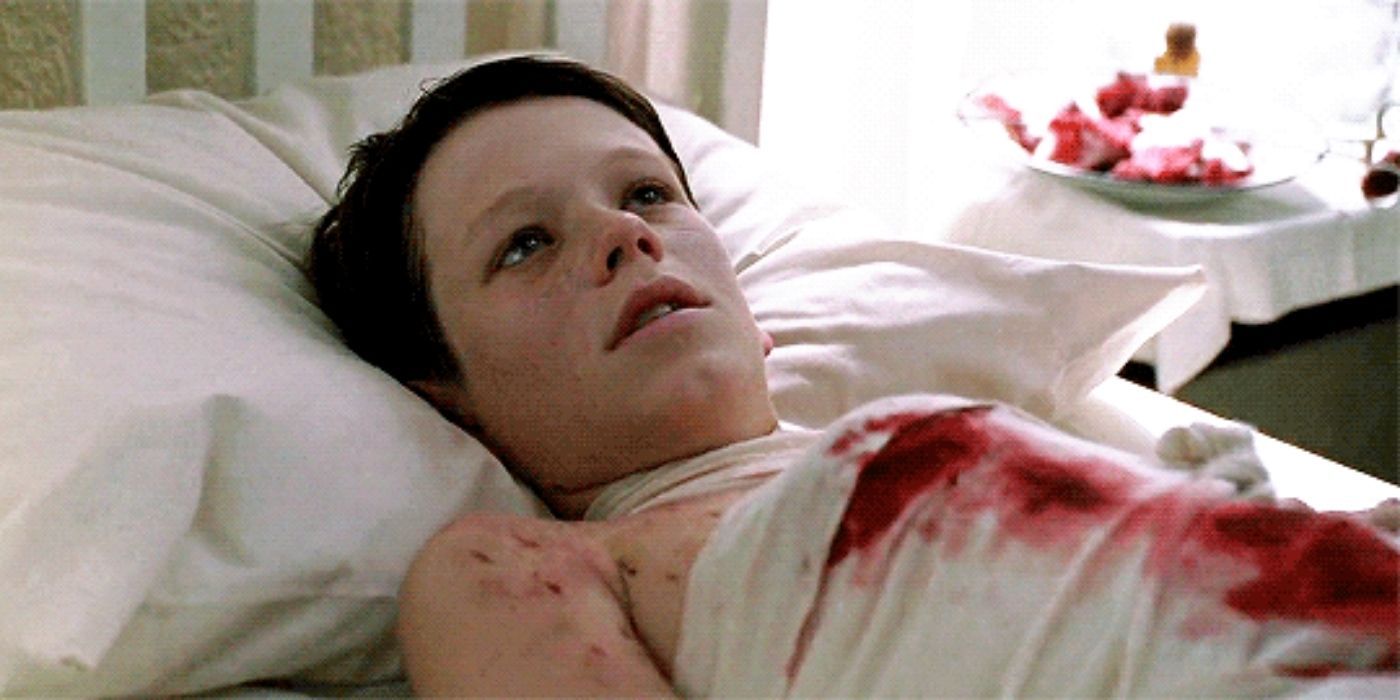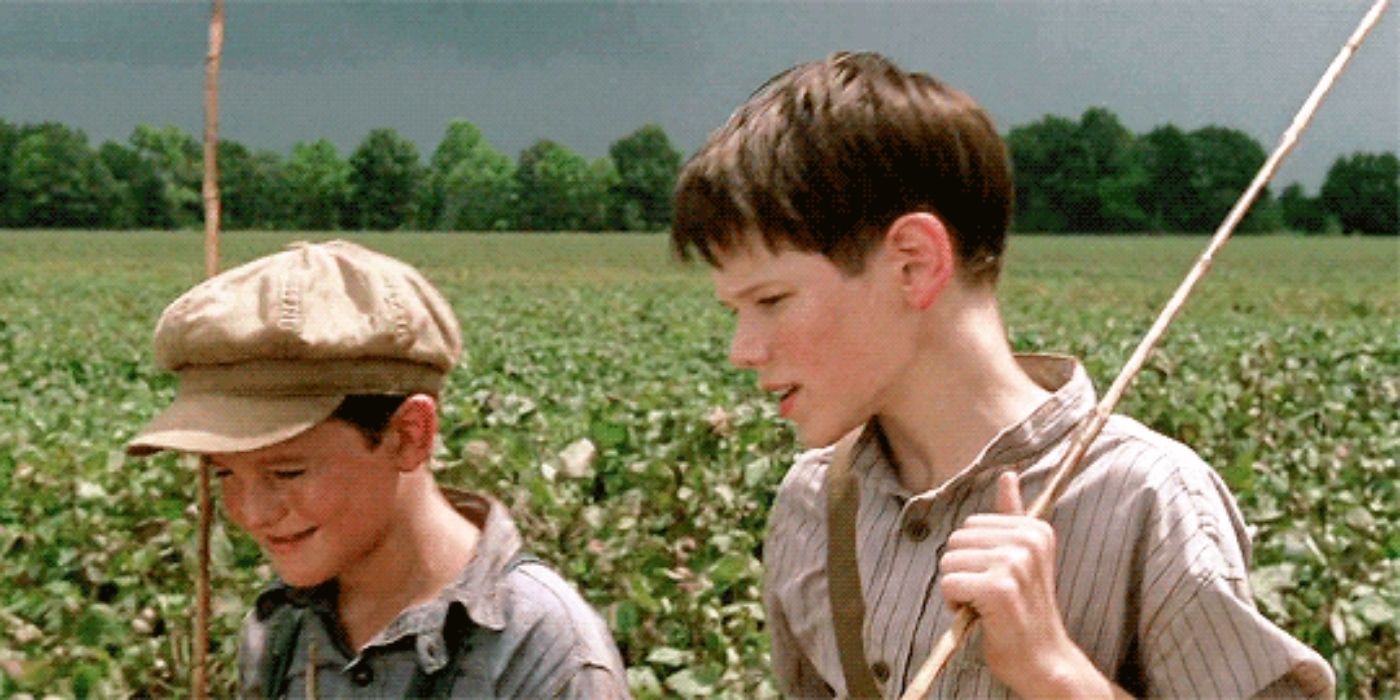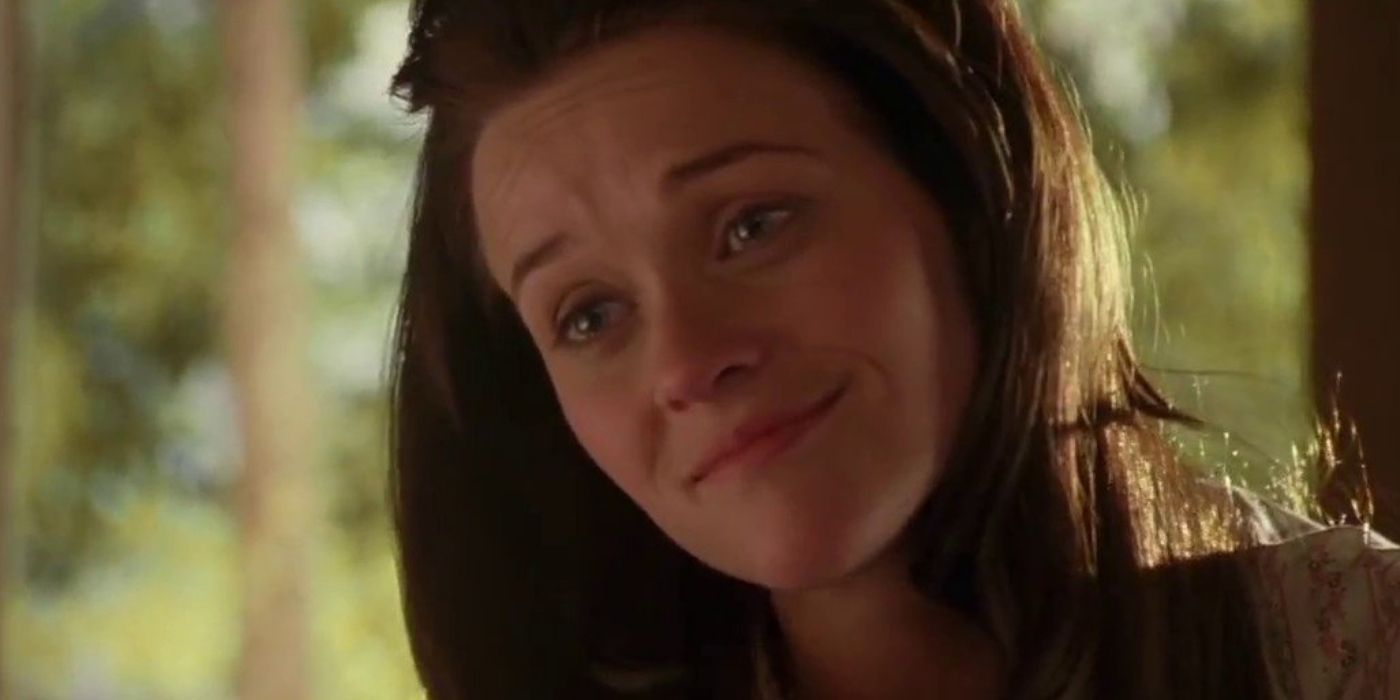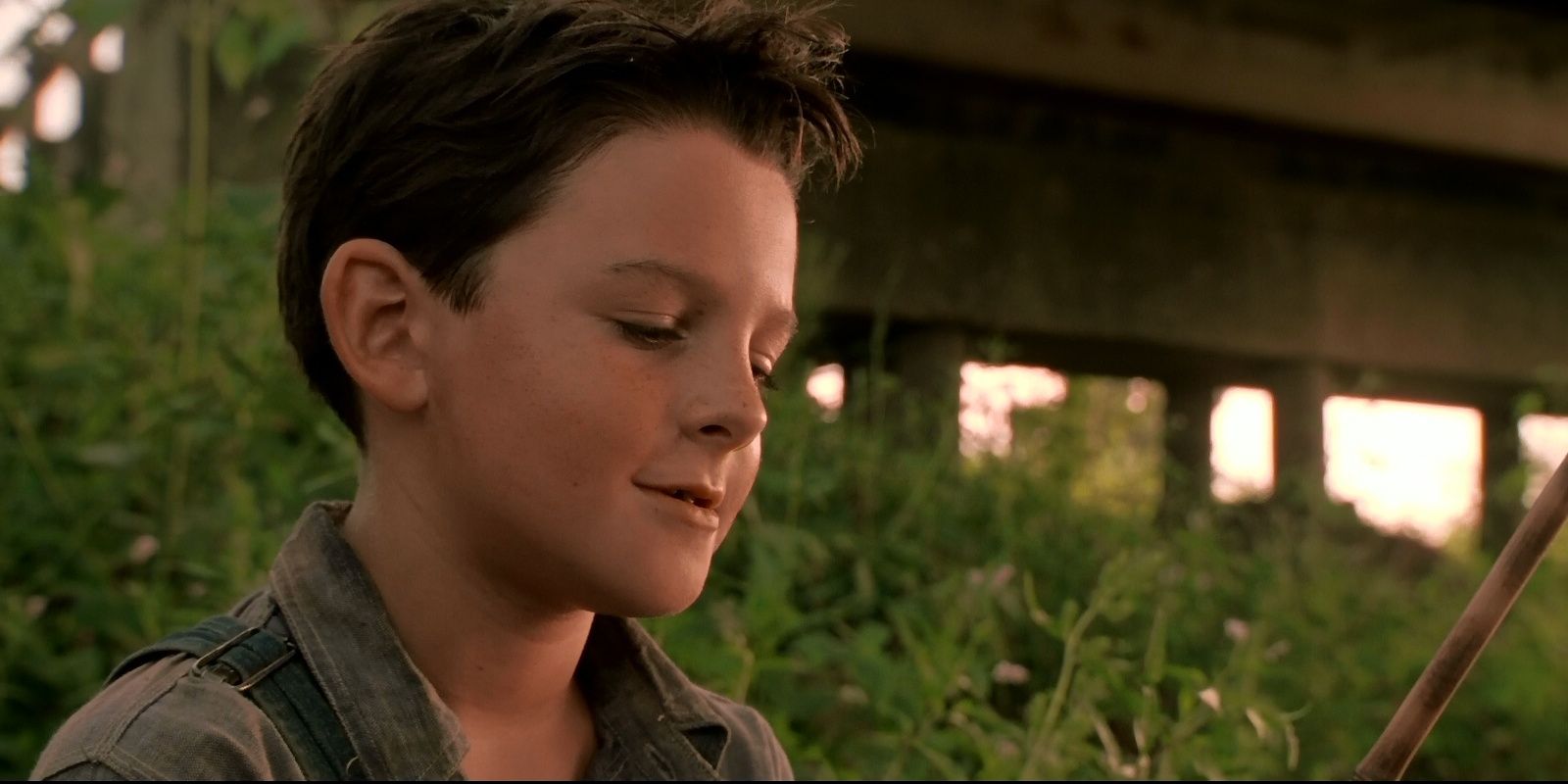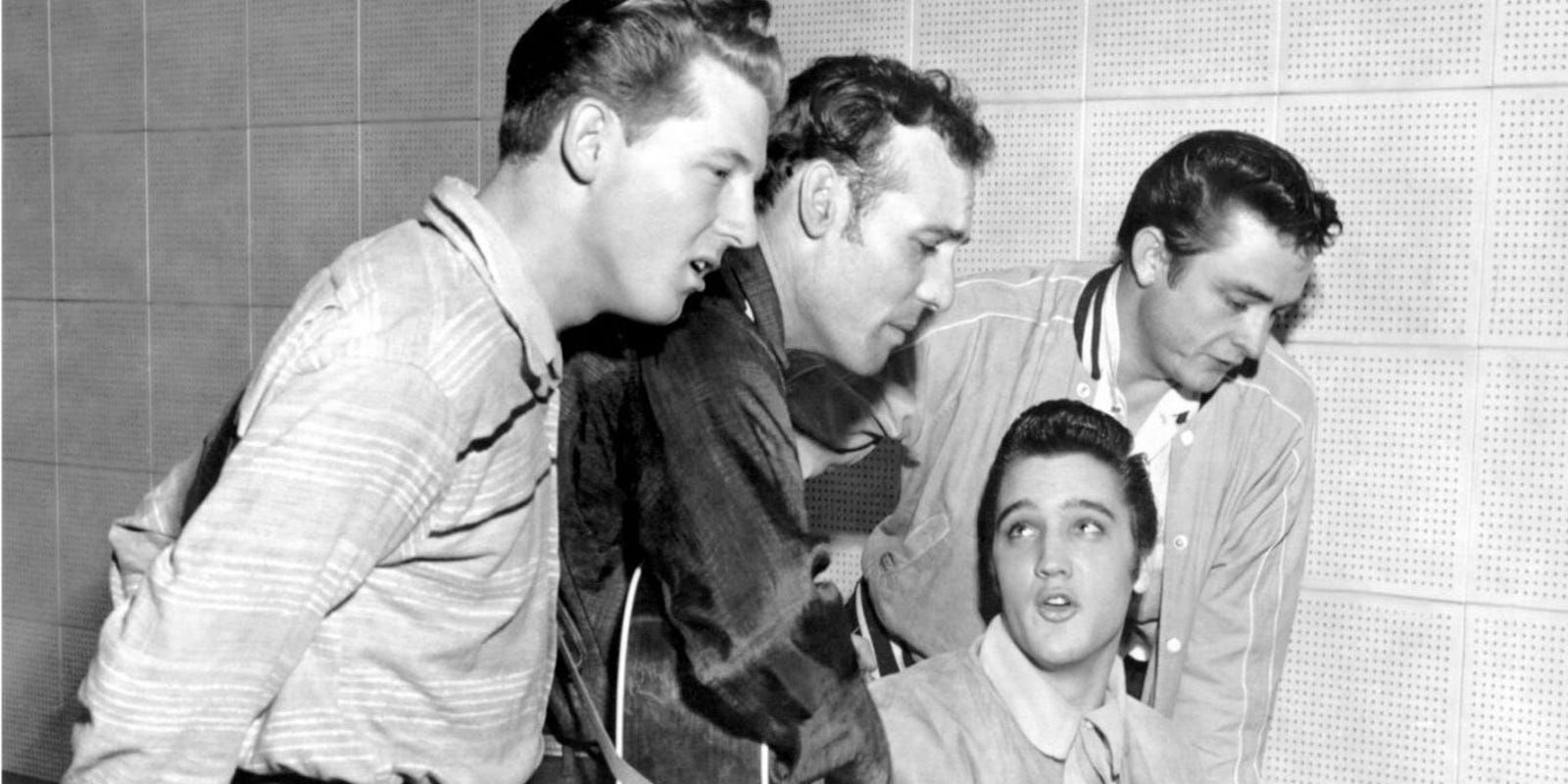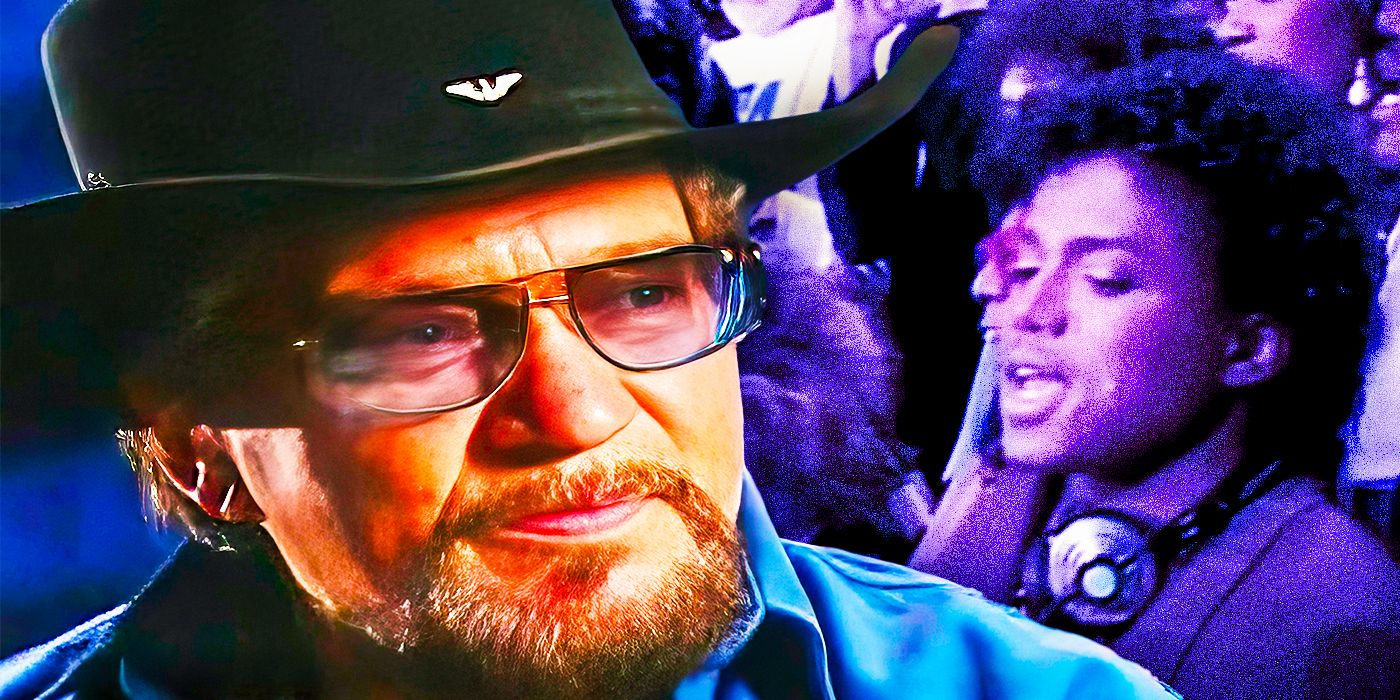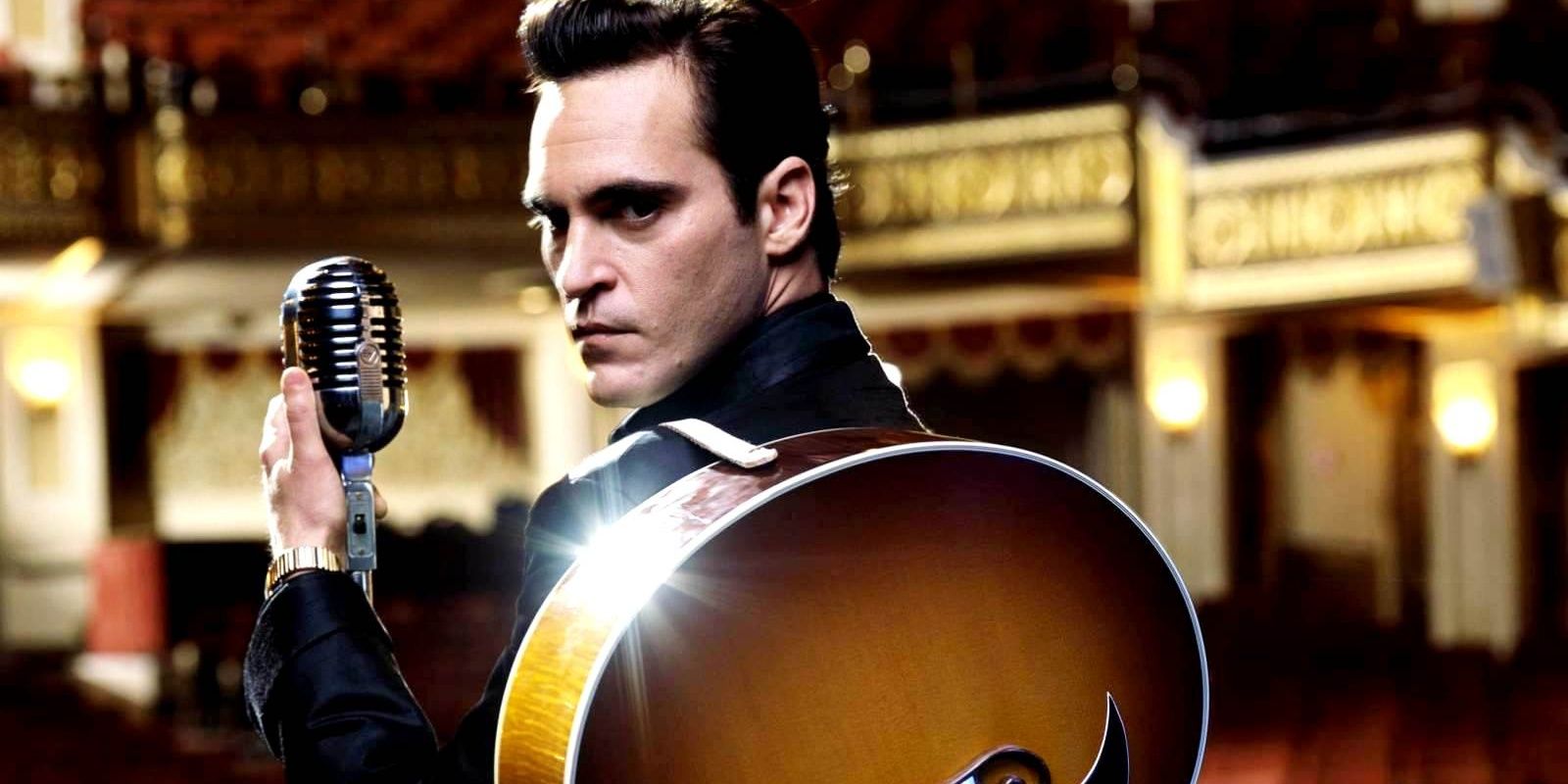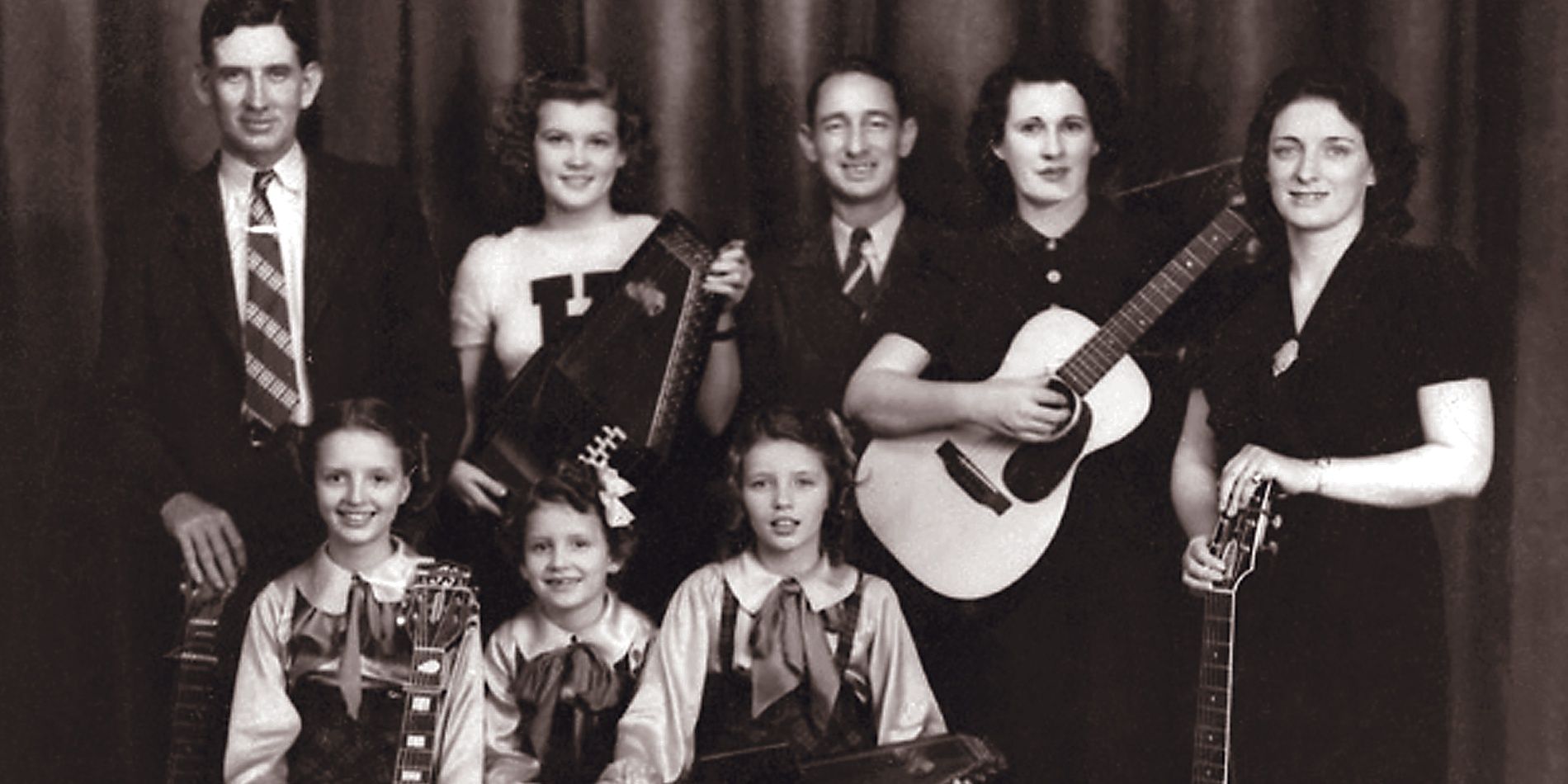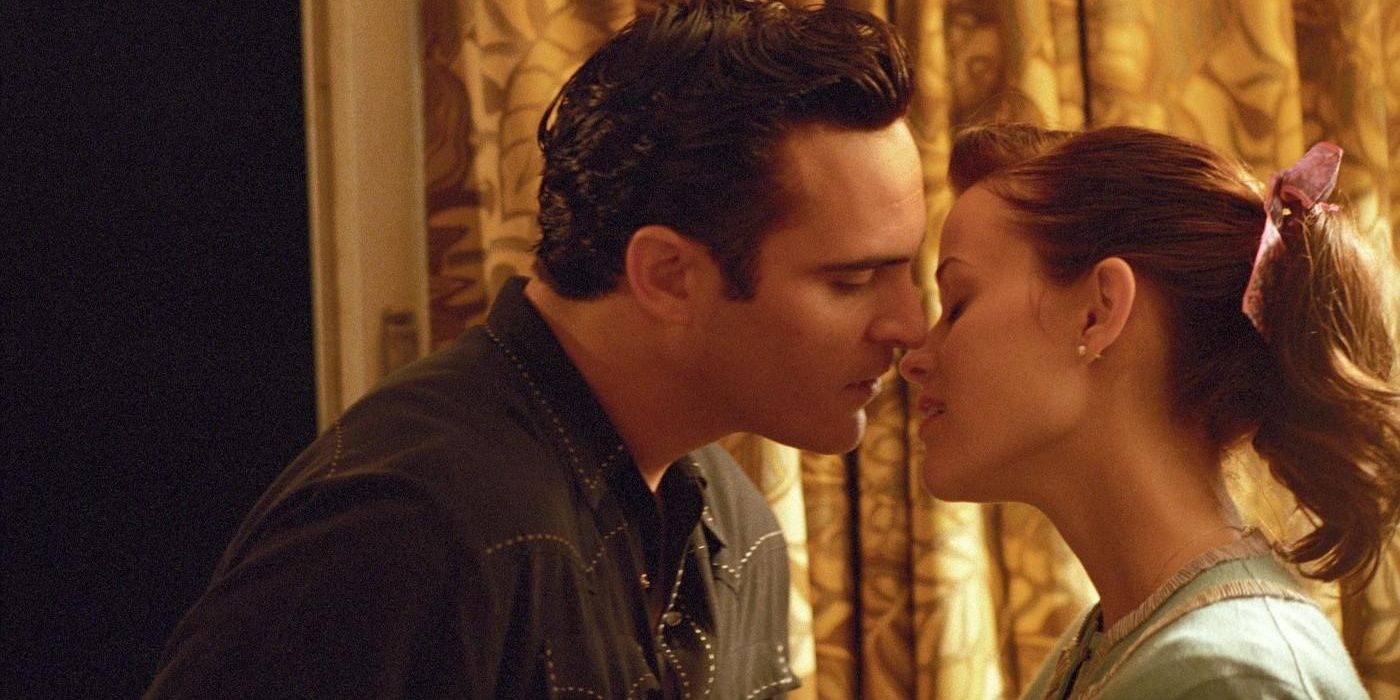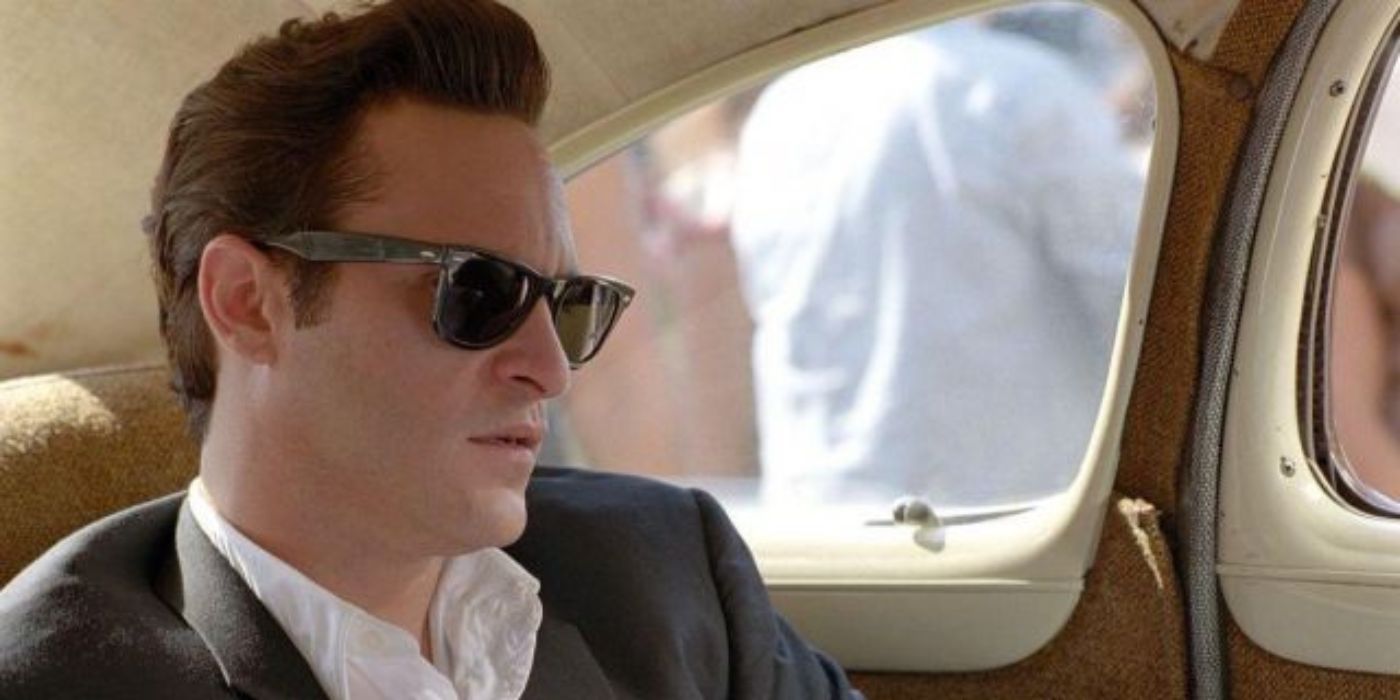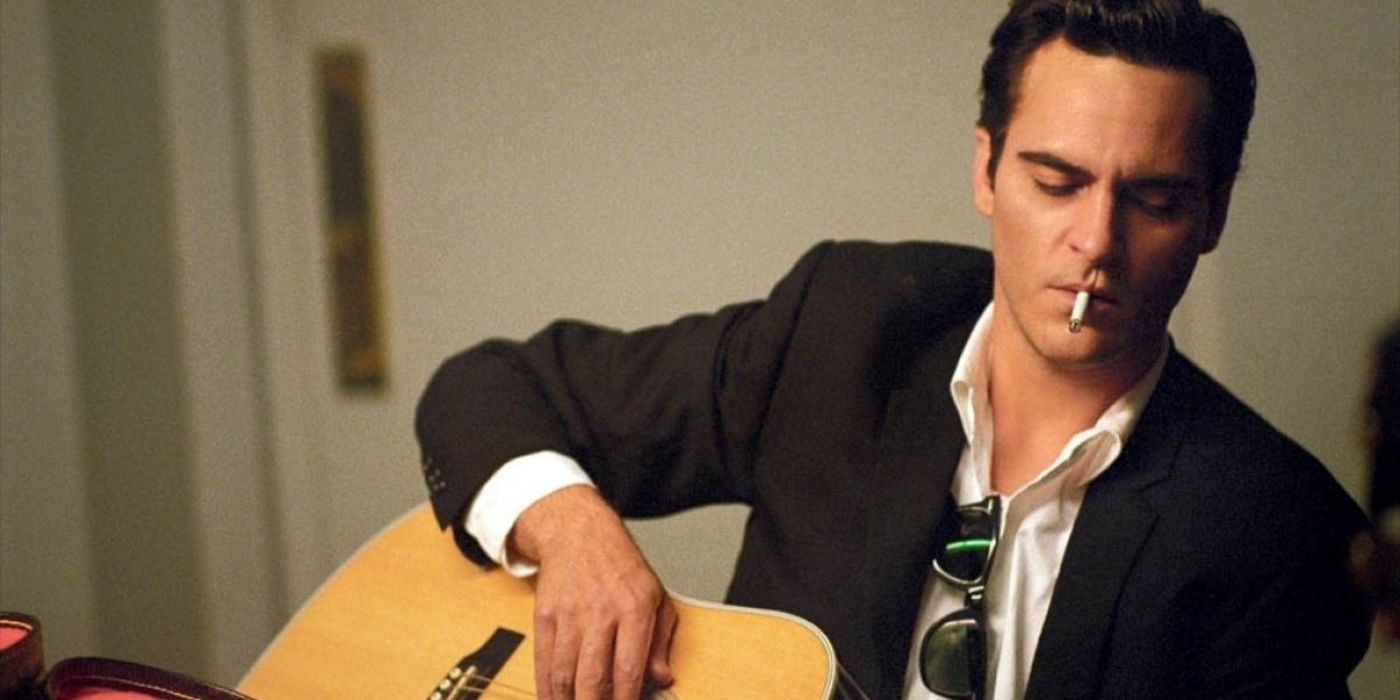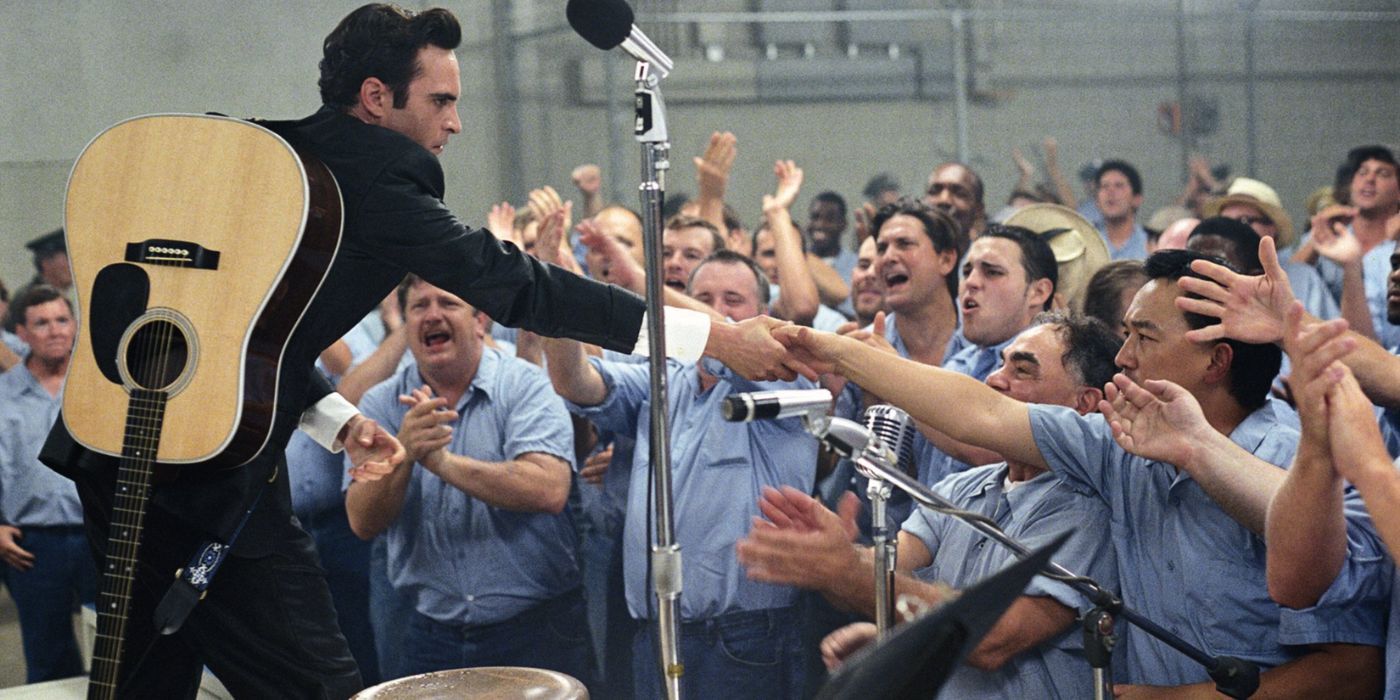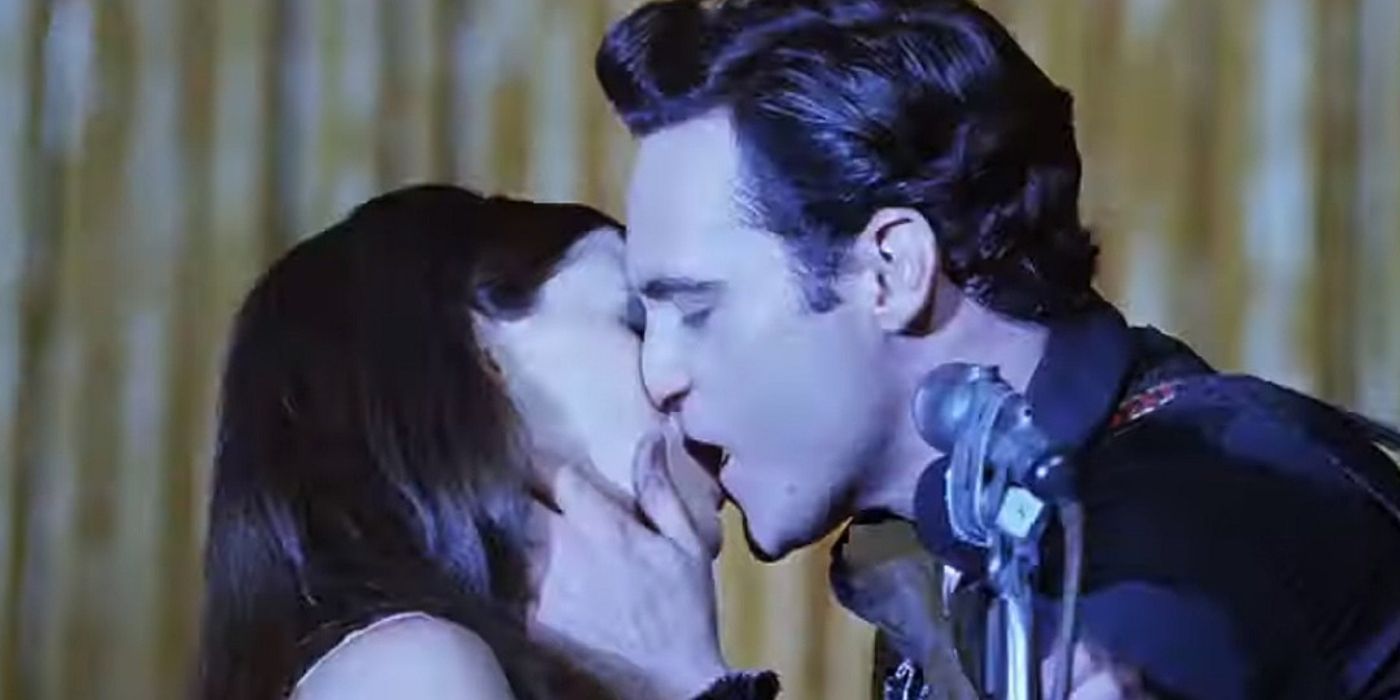Summary
- Johnny Cash was a legendary musician who found love and success with June Carter in a tumultuous but enduring relationship.
- "Walk the Line" portrays Johnny Cash's rise to stardom, struggles with addiction, and deep connection with his brother and wife.
- Despite some embellishments, key events in the film were genuine, reflecting the essence of Johnny Cash's life and relationships.
Though Walk The Line is an impressive biopic, some audience members might walk away from the movie wondering just how accurate it was. Johnny Cash was a true legend, not only for his songwriting and singing but also for his love of June Carter, his wife of 35 years. The couple was one of the most successful in country music, but it came at a price. Their love story became an award-winning film in 2005 with Reese Witherspoon portraying June Carter and Joaquin Phoenix starring as Johnny Cash.
Walk the Line tells the story of how a young J.R. Cash became not only a country music hero but also a devoted husband to June Carter, the love of his life. From Johnny's issues with addiction to his relationship with his first wife to his rise to stardom, how much of Walk the Line is a true story? With Johnny and June's son, John Carter Cash, as an executive producer of the film, many of the events shown were genuine.
Walk The Line is available to stream on Star+.
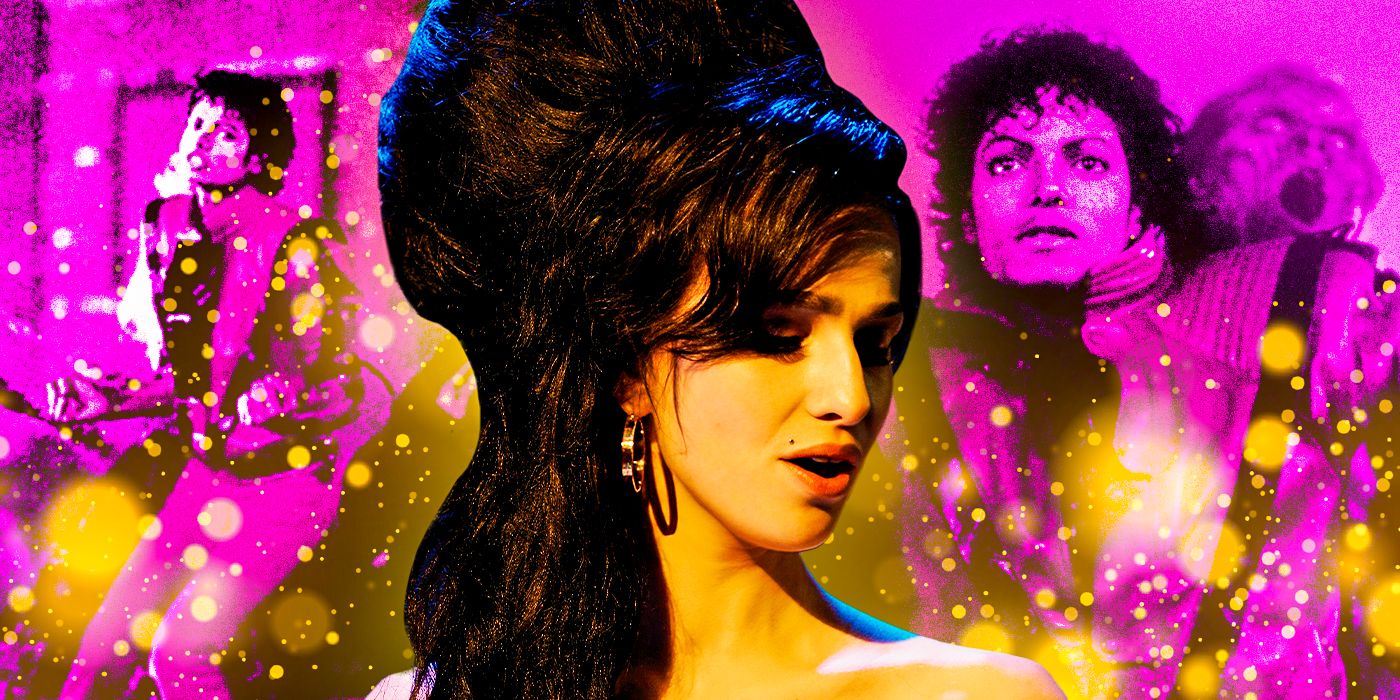
10 Upcoming Music Biopics You Need To Be Excited About
From legends like Bob Dylan to tragic figures such as Amy Winehouse, there are plenty of upcoming music biopics for viewers to get excited about.
Ray Cash Did Choose Favorites
The Complex Relationship Between Johnny and Ray Cash
Robert Patrick portrayed Ray Cash, Johnny's strict and hardworking father. Patrick is better known for his villainous roles in both TV and movies, and he plays the perfect unimpressed father in Walk the Line. In the movie, Ray hated how childlike and wonderous Johnny was.
He wanted Johnny to be serious and hardworking like his older brother Jack. This created a wedge between Ray and Johnny, and according to Wide Open Country, Johnny didn't say that his father blamed him per se, but Johnny's daughter Kathy did. In the book, Johnny Cash: The Biography, Kathy Cash said, "Grandpa always kind of blamed Dad for Jack's death. And Dad had this, just real sad guilt thing about him his whole life." While every moment between the two in the movie might not have been exactly correct, the spirit of their relationship is.
Johnny's Brother, Jack, Did Die At A Young Age
The Tragic Loss of Jack Cash
One of the big tragedies in Walk the Line occurs when, as a young boy, Johnny goes fishing as Jack stays behind to do some woodworking in the barn. It wasn't until Johnny was walking home that he saw his dad driving frantically down the road looking for him, saying that something horrible had happened to Jack. This tragic moment wasn't just created for the screen.
The movie followed real-life as Jack really did have a fatal injury with a table saw and passed away at the age of 14. According to Republic World, Jack lived for about a week after the incident in real life, but in the movie, he only lasted a few hours before passing away in bed, surrounded by his family. The incident left a mark on young Johnny Cash.
Jack Cash's Religious Beliefs Rubbed Off On A Young Johnny
The Influence of Jack Cash
Lucas Till and Ridge Canipe had brilliant performances as child actors for the younger versions of Jack and J.R. "Johnny" Cash. Jack was Johnny's older brother who he looked up to until his passing. In the film, Jack was very clearly their dad's favorite child and the one the family leaned on. Jack was also very religious and wanted to be a preacher, according to CheatSheet.
In real life, Jack actually was dedicated to religion and inspired Johnny in some ways. The same site reported that Jack's "spirituality rubbed off" on Johnny and, instead of looking at Jesus as his savior, he looked at Jack as his savior. Johnny tried to live a life he believed his big brother would have been proud of. He even helped to dig the hole for Jack's casket on the day of Jack's funeral, wanting to contribute to laying his brother to rest.
June Really Did Help Johnny Get Clean
June Carter's Influence
Fans who like to help others in need might have connected with Reese Witherspoon's character in Walk the Line. In the film, Johnny Cash spirals into a world of drugs as he becomes more famous and the pressure to create art that sells mounts. By the time June realized how severe Johnny's drug issue was, she was already in love with him. In the film, the two spent some time apart before June stepped in and helped Johnny get clean.
According to Town and Country, that part of the film was true. June was shown keeping Johnny at her parents' house and keeping him away from the wrong crowd. Johnny credits June for getting (and keeping) him sober. Though June was able to help Johnny, she allegedly also had her own battles with addiction around the same time, according to their son John Carter Cash, who penned the memoir Anchored in Love and released it in 2007.
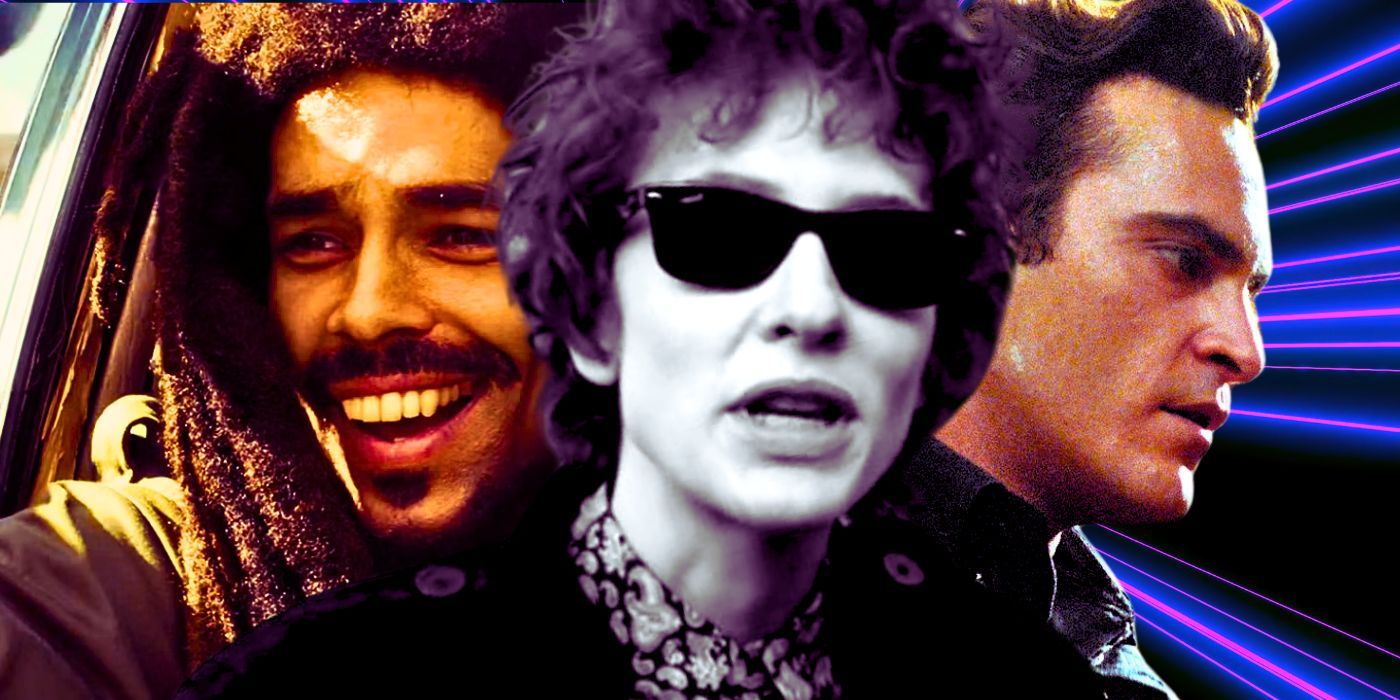
10 Great Music Biopics To Watch After Bob Marley: One Love
Kingsley Ben-Adir captured the reggae legend in Bob Marley: One Love, and there are plenty of other great biopics for viewers to check out next.
Johnny Cash Started Writing Songs As A Kid
The Early Songwriting Days
Before there was Taylor Swift and her songwriting praises, there was Johnny Cash. In Walk the Line, fans see a young Cash, played by Ridge Canipe, sitting on a bank as he fishes and sings a song to himself that he just made up. The moment is sweet as it shows his innocence before he finds out what happened to his beloved brother Jack, but it also demonstrates his ability to pen songs that would be honed as he got older.
Johnny Cash is one of the most respected songwriters, and it might be because he had years of experience. By the time he was 12 years old, he was writing poems and songs. According to The American Songwriter, Cash once stated, "I always knew I wanted to be a songwriter and a singer." Thankfully for his millions of fans, he never gave up on his childhood dream.
Jerry Lee Used To Tell Everyone They Were Going To Hell For Their Music
Rock 'n' Roll in the 1950s
The 1950s were a different time. Then, rock n' roll was not widely accepted and many believed it was too rebellious. The idea was that it would corrupt young minds. Joaquin Phoenix's performance as the dark rebel was spot on. In Walk the Line, Jerry Lee Lewis, played by Waylon Payne, tells the other musicians that they're all going to Hell because of their music.
In the book, Johnny Cash: The Last Interview: and Other Conversations, Johnny Cash told the interviewer how Jerry Lee Lewis thought he was going to Hell for not preaching and would also tell the others on the tour they were going to Hell as well for the type of music they were playing. Johnny Cash merely replied, "Maybe you're right, Killer, maybe you are." It doesn't seem like Johnny was too bothered by the idea.
Johnny Cash Shared An Apartment With Waylon Jennings
Lifelong Friends
Country singer Waylon Jennings (who was responsible for hits like "Amanda" and the theme from The Dukes of Hazard) and Johnny Cash were lifelong friends. Jennings was a guest on The Johnny Cash Show and the two were in the Highwaymen together along with Willie Nelson and Kris Kristofferson. But their friendship goes beyond just their music and performing together.
One of the more lighthearted scenes in Walk the Line is when Waylon Jennings, played by his own son Shooter Jennings, is sitting in front of the open door singing and playing his guitar while Johnny Cash is passed out on the couch. The two country music legends did briefly share an apartment, according to Outsider. They often joked about how Johnny was the cook and Waylon would clean by calling June to come over to do it for him.
Johnny Cash Was Fired From The Grand Ole Opry
Johnny Cash's Ban from the Grand Ole Opry
One has to be a real outlaw like Hank Williams to get kicked out of the Grand Ole Opry family. It doesn't happen often. One of the most dramatic scenes in Walk the Line is when Johnny Cash smashes up the floor lights while on stage at the Opry. It happened because he was intoxicated at the time.
In 1965, Taste of Country noted that Johnny Cash joined the elite club of artists banned from the Grand Ole Opry. After he smashed the floor lights with the mic stand, the glass went into the front row of the audience. The pristine country music establishment wanted no part of Johnny Cash's rebellious ways. The ban lasted for a few years, but luckily for country music fans, the two sides repaired things in 1969.
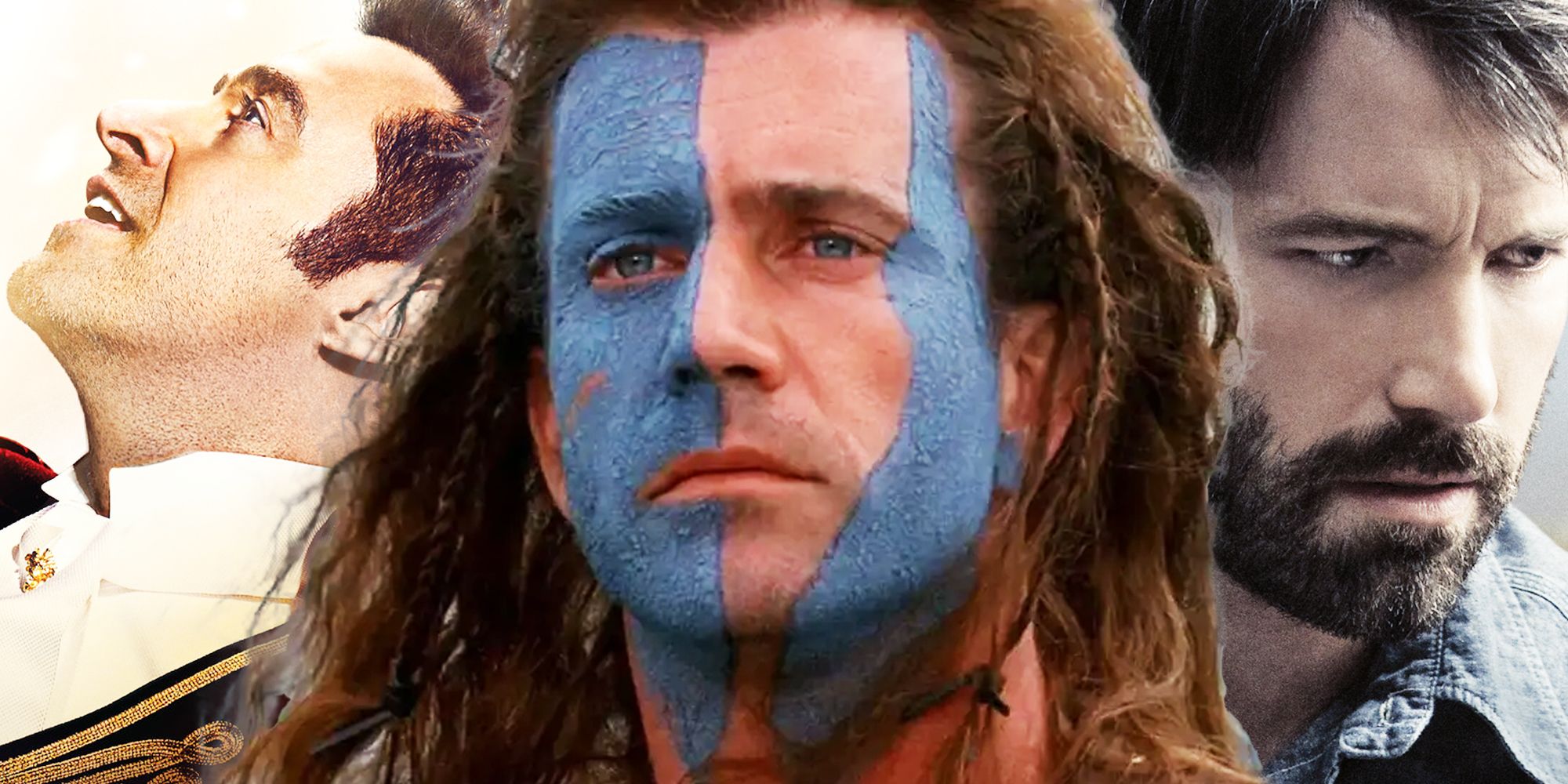
10 Most Inaccurate Movie Biopics (That Are Still Really Good)
Biopics are usually known for being historically accurate, but that isn't the case for these 10 movies - but that shouldn't be held against them.
In addition to Williams and Cash, other country artists banned from the Opry over the years include Skeeter Davis (for badmouthing Nashville police), Jerry Lee Lewis (for breaking Opry rules about cursing and rock music), and Dierks Bently (before he even became famous for sneaking backstage).
Johnny Cash Listened To June Carter And Her Family On The Radio As A Kid
Johnny Cash's Admiration for June Carter
A touching moment in Walk the Line was when young Johnny Cash listened to his future wife June Carter on the radio. Fame 10 noted that Johnny Cash first listened to the future love of his life on a Mexican radio station, XER, which would broadcast the performances of the Carter Family. Johnny Cash truly was a fan of the Carter Family long before he met and fell in love with June.
In the film, when Johnny finally met June, it was easy to see why he loved her, and he wasn't shy about telling her he used to listen to her family on the radio. Cash once stated that Mother Maybelle was one of the greatest stars he had ever known and even tried to model his guitar playing after Maybelle's, according to NPR.
June Carter Wrote Ring Of Fire About Her Love For Johnny Cash
June Carter's Love Song for Johnny Cash
"Ring of Fire" was one of Johnny Cash's greatest hits as it became inducted into the Grammy Hall of Fame in 1998. (Even the movie won a Grammy for its soundtrack.) Since Johnny Cash was an unbelievably talented songwriter, many believe he wrote one of his most beloved songs. But in fact, Walk the Line got it right, as June Carter wrote the famous tune about her love for him, according to Country Fancast.
June Carter thought up the song one night while she was driving around frustrated about her feelings for Johnny Cash and all the chaos he brought into her life. Originally, she had no intention of having him sing it as she gave the song to her sister Anita. Anita recorded it and released it, but it didn't get the same buzz it would get later. Johnny Cash loved it and wanted to record it. The rest is country music history.
Johnny Cash Was Arrested At The El Paso Airport
Johnny Cash's Complicated Relationship with the Law
"When I was arrested, I was dressed in black" is one of Johnny Cash's lyrics from his hit song "Cocaine Blues." The man in black was arrested at the El Paso Airport in 1965 for smuggling amphetamines from Mexico, according to Outsider, which was depicted perfectly in Walk the Line. The List wrote that Cash was arrested a total of seven times for drunkenness, drug possession, and picking flowers at 2 am. This did not sit well with his conservative audience. But Cash didn't seem to mind as he knew he belonged with the crowd that had seen hard times.
Interestingly enough, despite his multiple arrests, Cash didn't spend a significant amount of time in jail following any of them. He still had a lot of empathy for those who spent time behind bars and the mistakes they made to get there though.
His Legal Name At Birth Was J.R. Cash
The Man Behind Johnny Cash
Everyone knows who Johnny Cash is, but what about J.R. Cash? They're actually the same person since Johnny Cash's legal name at birth was J.R. Cash. CheatSheet said that J.R. was a compromise between John and Ray as his parents couldn't agree on what to name him. It might have stuck, but when he joined the U.S. Air Force they required him to have a first name so he became John R. Cash.
He changed his name once more to Johnny Cash in 1955 when he signed with Sun Records at the urging of management there. His name to this day, is one of the most well-known and loved in all of country music, thanks to the multiple biopics and movies, but people could have been singing J.R. Cash's music instead if the record label hadn't insisted on a name change.
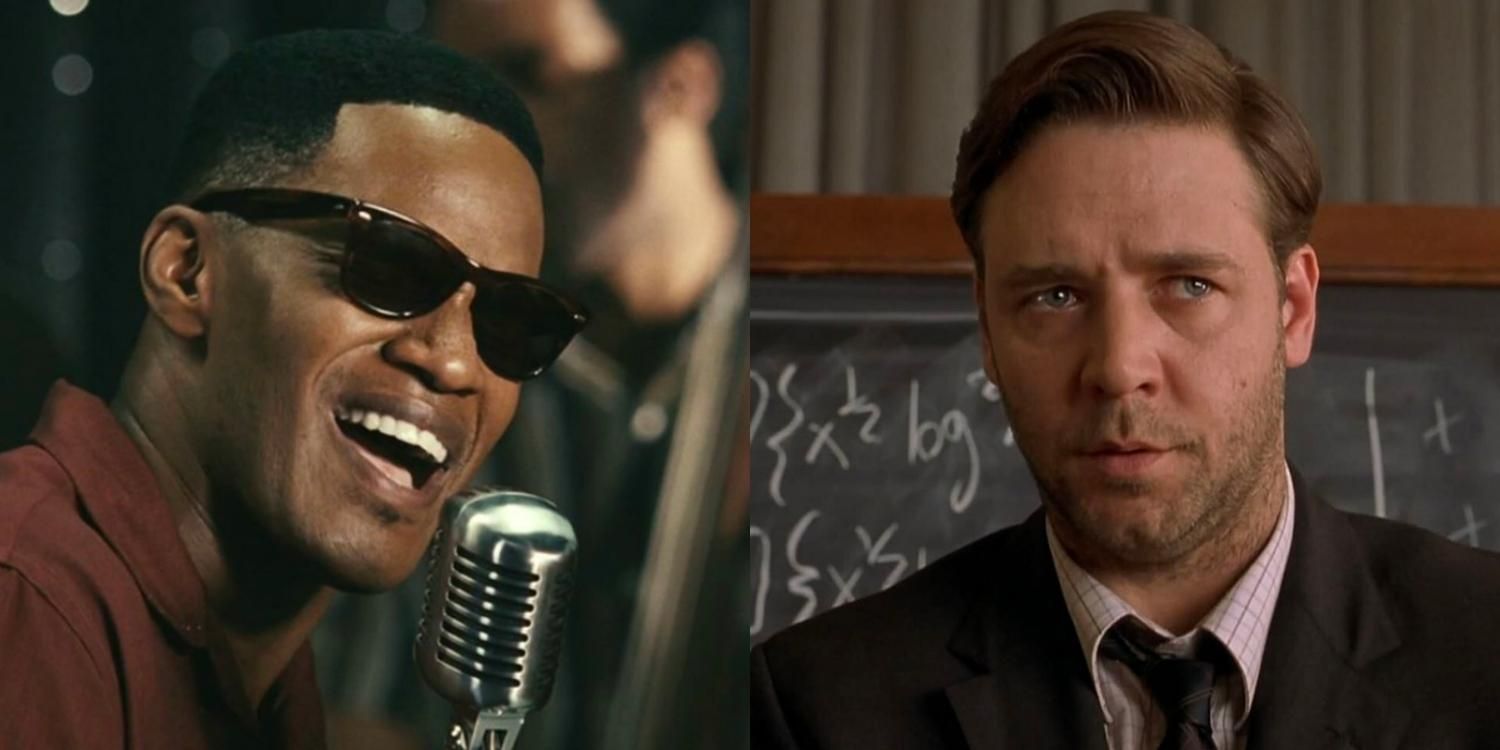
10 Best Biopics, According To Ranker
The users of Ranker have helpfully voted to identify some of the best biopics that have been made, showcasing the filmic power of real lives.
It Was Johnny Cash's Idea To Perform At Folsom Prison
Johnny Cash's Historic Performance
At Folsom Prison became an iconic album in music history as it revived Johnny Cash's career and became one of his most popular records. According to Johnny Cash's official website, the country legend took the stage at Folsom Prison on January 13, 1968, which was a long time coming.
Cash first became interested in Folsom Prison when he was in the Air Force in 1953 after his unit watched the film Inside the Walls of Folsom Prison. The film led him to write his hit song "Folsom Prison Blues," which became popular among inmates who would often write to him to ask him to come to the prisons to perform. Cash saw his comeback as the perfect opportunity to perform for his biggest fans. This moment was shown in Walk the Line, which led to its Oscar nomination and award.
Johnny Cash Proposed To June Carter On Stage
Johnny Cash's Proposal to June Carter
Viewers of Walk the Line cheered when Johnny Cash asked June Carter to marry him, and she finally said yes after the two of them had such a turbulent start to their relationship. Though they had a pretty instant connection, they were initially married to other people, and then coworkers, before they admitted their feelings to one another. Fans might have believed the proposal scene was written to add more drama to the film, but Johnny Cash really proposed to June Carter on stage on February 22, 1968, according to The Boot.
The pair were married a week later on March 1, 1968, in Kentucky. They stayed together in love until June's passing on May 15, 2003. Johnny Cash followed his wife as he passed away only a few, short months later on September 12, 2003. They walked the line together for 35 years. Today, Walk The Line is still one of Joaquin Phoenix and Reese Witherspoon's best feature films, and a very accurate biopic.


